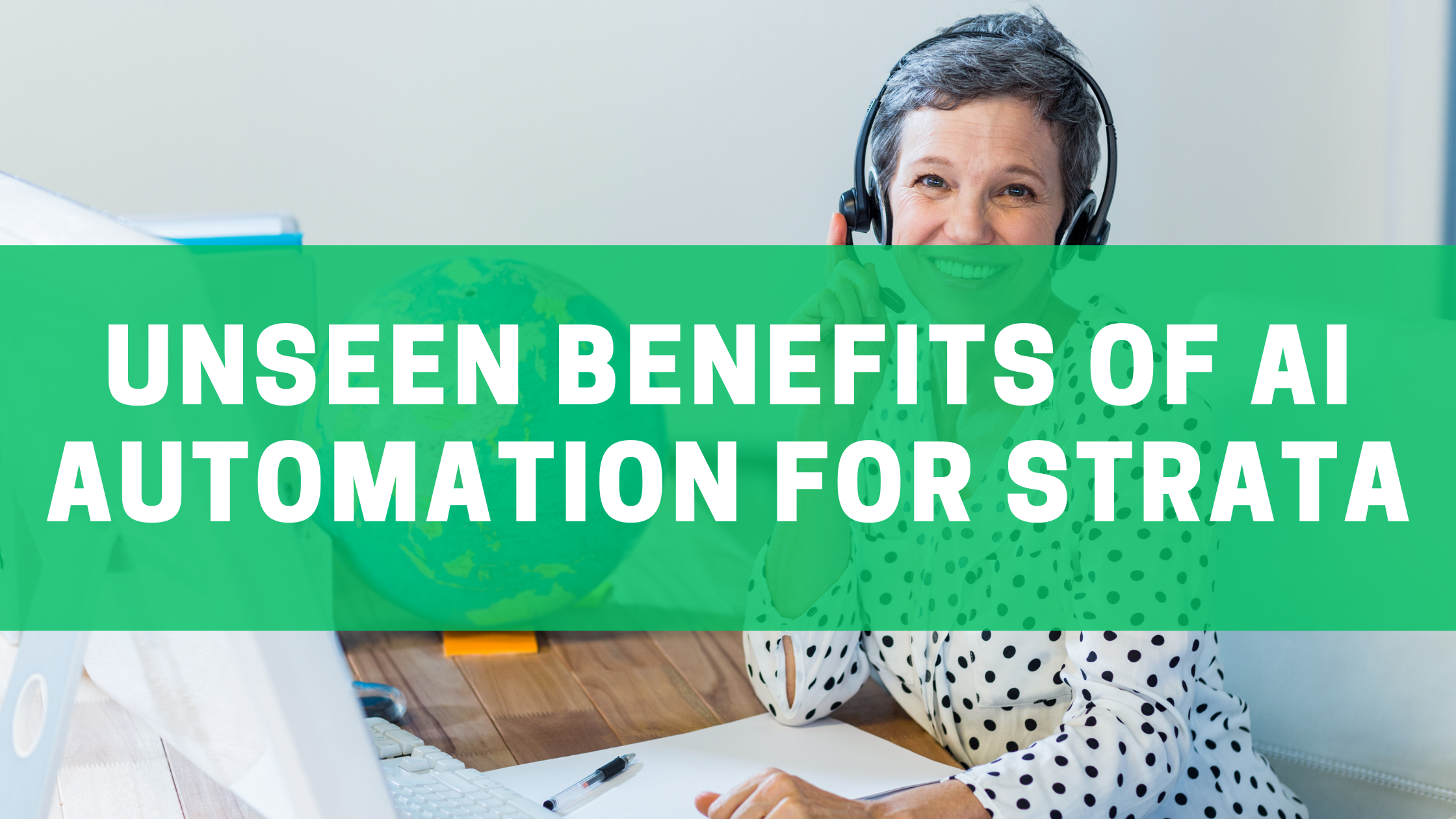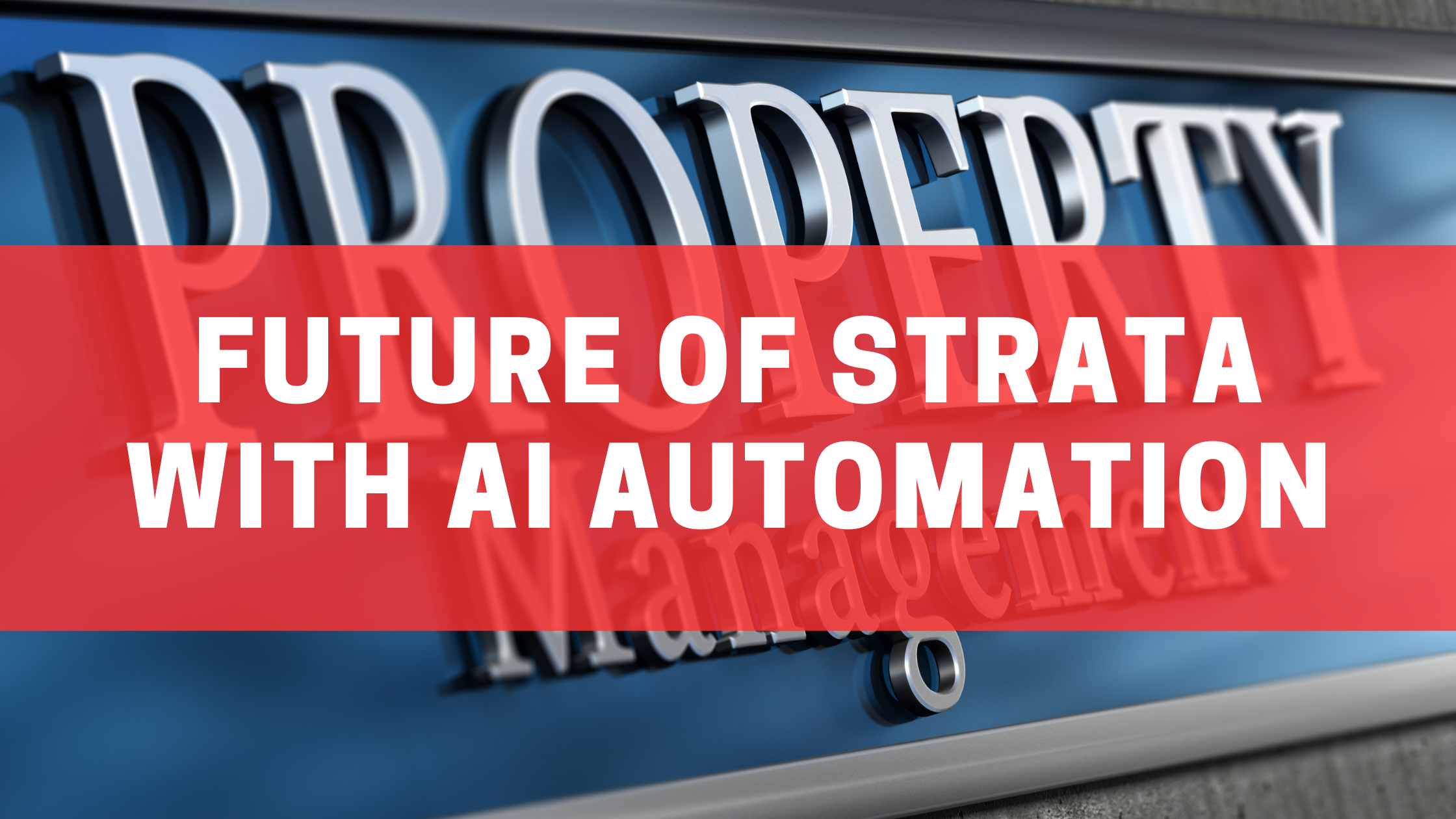The future of property management is being rewritten by the emergence of Artificial Intelligence (AI) agents, marking a departure from traditional practices towards a...
The strata management world today is a highly competitive one, where the pace is relentless and the tasks never-ending, Australian single strata managers, those independent, self-employed maestros of multi-residency, face a unique set of challenges. They spend their days juggling customer inquiries, coordinating Annual General Meetings (AGMs), managing special projects, and handling invoicing—all demanding tasks that consume time and energy. Enter artificial intelligence (AI), a beacon of efficiency that promises not just to support but to revolutionize the way strata managers operate.
1. The Rise of AI in Strata Management
In recent years, AI has made significant inroads into various sectors, offering solutions that automate and optimize tasks to unprecedented levels. For strata managers, particularly those running lean operations as solo entrepreneurs, AI isn’t just a luxury; it’s becoming a necessity. The shift towards AI-driven management is not about replacing the human element but augmenting it, allowing managers to focus on decision-making and customer service, rather than getting bogged down in administrative quicksand.
2. The AI Assistant: More Than Just a Virtual Aid
Most strata managers are familiar with virtual assistants—remote workers who manage emails, documents, and customer queries. However, AI brings a different caliber of assistance. Tools like custom built AI agents/assistants, or even ChatGPT and other generative AI technologies can manage customer inquiries, draft and summarize emails, and even help prepare reports for AGMs. These AI systems learn from interactions, improving over time to offer more personalized and accurate assistance. Businesses like mine also help companies to build their own AI agent workforce to get the job done.
3. Transforming AGM Processes and Project Management
Annual General Meetings are crucial in the strata sector, requiring meticulous planning and follow-up. AI can streamline AGM preparations by automating scheduling, sending reminders, and even generating minutes and action items during the meeting. For project management, AI can track progress, coordinate tasks, and ensure deadlines are met, all while keeping stakeholders informed. Working with AI automation expert you can use platforms such as Power Automate to automate the entire process so using generative AI, you can accomplish these days without human intervention.

4. Invoicing and Financial Management Made Easy
Invoicing and financial tracking are time-consuming yet critical. AI-driven tools can automate these processes, offering error-free accounting and timely invoicing. Moreover, they can analyze financial data to provide insights into spending patterns and suggest budget optimizations, leading to better financial health and potential savings.
5. The Cost-Benefit Paradigm
Adopting AI may seem like a substantial initial investment, but it’s crucial to consider the long-term savings and efficiency gains. Unlike human assistants, AI doesn’t require breaks, sick leaves, or even a salary. The cost of running an AI system is a fraction of hiring a full-time assistant, with the added benefit of scalability and precision.
6. The Road Ahead: Embracing AI for Competitive Edge
For strata managers, the question is no longer if they should adopt AI, but how quickly they can do so. By embracing AI, they can significantly reduce the time spent on routine tasks, improve accuracy and response times, and provide superior service to their clients. It’s not just about staying competitive; it’s about setting a new standard in strata management.
In conclusion, as we look towards a future where AI integration becomes the norm, Australian strata managers, particularly those steering their own ships, stand at a pivotal moment. The adoption of AI is not just an upgrade to their business model; it’s a transformative journey towards greater profitability, efficiency, and service quality. By recognizing the potential of AI and taking steps to integrate it into their operations, these managers are not just surviving; they’re thriving in an ever-evolving landscape.



